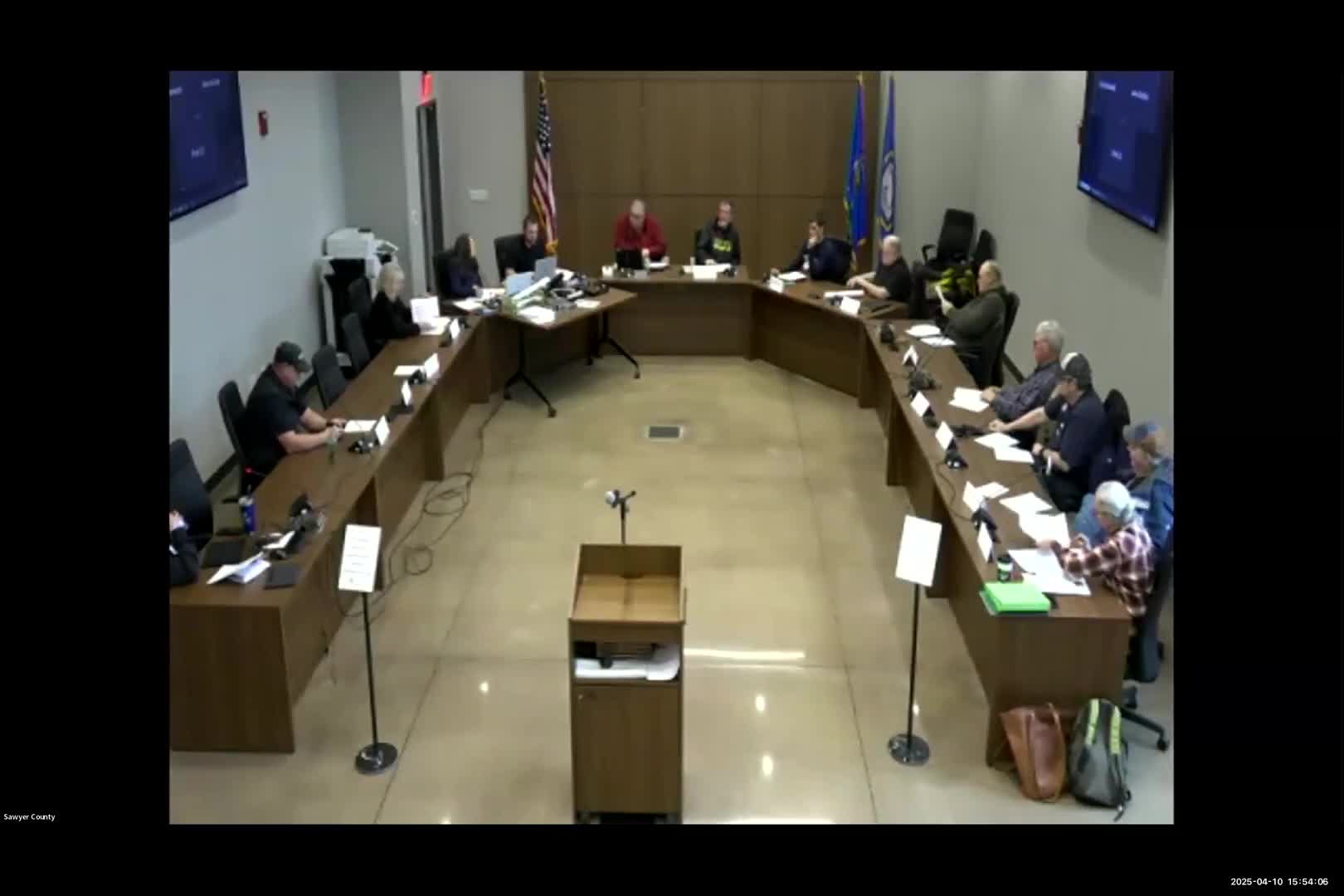Camping cabin rule change draws resistance from towns and lake groups
Get AI-powered insights, summaries, and transcripts
Subscribe
Summary
A proposed change to the county’s camping-cabin rules — increasing size limits and allowing utilities — prompted objections from town boards and conservation advocates, who warned the change could permit tiny-home-style permanent units in campgrounds and raise density, wastewater and shoreline concerns.
A proposed amendment to Sawyer County’s camping-cabin rules prompted strong pushback from town boards and some committee members, who said the draft would allow larger, utility-served units that resemble tiny homes and could increase campsite density along shorelines.
Zoning staff explained the proposed change would align the county’s camping-cabin definition with state guidance (ATCP 79) in order to remove a prohibition on water, sewer and gas and to raise the maximum floor area from 300 to 400 square feet. “That is where I used state definition of ATCP 79 and inserted camping cabins to that definition, which does not have a prohibition of gas, water, and sewer and has a 400 square foot max,” Jay Kozlowski said.
Town of Hayward and Town of Hunter officials reported contentious hearings. The Town of Hayward denied a petition; several town officials told the committee they lacked sufficient information and were concerned the change would allow permanent slabs, plumbing and year-round occupancy in campgrounds. “The person requesting these said... they’re gonna go on a slab. That gives an indication right there that that's permanent,” a Hayward board member said during the meeting.
Committee members raised practical questions about wastewater capacity, state plumbing and wastewater code (SPS 383), and existing campground density rules. One county representative noted that current campground rules permit up to five campsites per acre, and asked whether allowing 400-square-foot utility-served cabins could lead to effectively permanent, dense developments on shoreland property.
Public commenters and committee members suggested alternatives including: retaining the prohibition on internal plumbing and utilities, limiting the percentage of campsites that can be cabin-style within a campground, or requiring additional appraisal of wastewater and environmental impacts before changing county rules. Several members recommended legal review and additional town input before forwarding any camping-cabin amendment to the zoning committee.
The committee did not adopt a final change and instructed staff to return with clearer options, including the wastewater/gallons-per-day implications and possible limits on the percentage of cabin-style units within a campground.
